This news bites: Raupp and Arsenault-Benoit weigh in on what warmer weather means for mosquitos11/10/2021
We're not the only ones enjoying the warm weather this Fall, mosquitoes are too! Over the past several months Professor Emeritus Mike Raupp and PhD student Arielle Arsenault-Benoit have been fielding questions on when mosquito season is expected to end and whether or not climate change is a factor in mosquitos lingering longer than years past.
Raupp in the Diamondback: Entomology professor Michael Raupp explained that temperature increases the speed in which insects develop, grow, molt and capture their prey. In a warming world, winter is shorter, so mosquitoes become active earlier in the year and remain active later in the year. Arsenault-Benoit in the Washingtonian: This matters because mosquitoes “take a lot of their cues from the environment,” says Arielle Arsenault-Benoit, a Ph.D. student in the Department of Entomology at the University of Maryland, who has been collecting and conducting research on mosquitoes for three years. “The temperatures are not very cold for the [mosquito] adults to realize it’s getting to be winter,” Arsenault-Benoit says Raupp in The Washington Post: Raupp mentioned that the mosquito species Culex pipiens, common house mosquitoes that are well-known carriers of West Nile virus, can remain active all year. “Even on warm days in late autumn or winter in D.C., there could be blood,” Raupp said. “These devils live and breed year round in basements, parking garages, and tunnels under cities. They can bubble out and feed when it is warm enough.” Homeowners, landscapers, and gardeners DYK protecting habitat for overwintering insects can be as simple as leaving leaves lie? Preliminary data from a study conducted by Max Ferlauto, PhD student in the Burghardt lab, shows the number of emerging moths and butterflies are reduced by about 67 percent in areas where leaves are removed. For more on Ferlauto’s project and steps you can take to support overwintering insects check out The Diamondback article.
Congrats on the coverage Max! Share with your networks on facebook and twitter. Professor Bill Lamp & colleagues part of multi-state team studying diverse perennial forage systems. Lamp says, “We want to test that growing diverse species of crops, and using perennial crops, will add more beneficial insects to the farm. We are especially interested in ‘conservation biological control,’ in which populations of natural enemies of pests are enhanced by diverse, perennial crops.” Full AGNR press release: https://agnr.umd.edu/news/entomology-and-extension-faculty-join-national-team-study-and-support-diverse-perennial-forage?fbclid=IwAR26bwOizAlo1wLYMflnzqnq3tMCMMY-V75XdUDOV3GwLQNJBSNy83FnZd4
Share on facebook and twitter 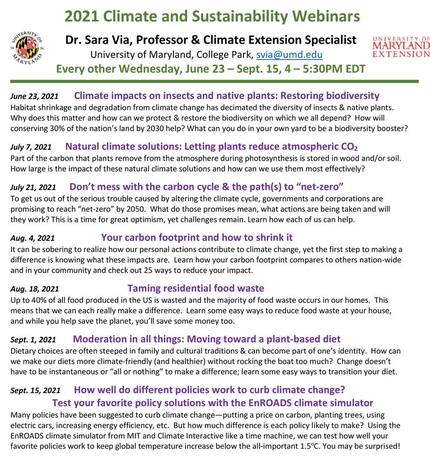 Join Dr. Sara Via, Professor & Climate Extension Specialist for the 2021 Climate and Sustainability Webinar Series beginning at 4 p.m. on June 23. Learn about the impacts of climate change and what you can do to help every other Wednesday in this summer-long series ending Sept. 15. Learn more and register for one or all of the webinars at https://climatecorner.org/webinars/ 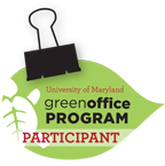 The Department of Entomology is a participant of the Green Office Program and is working towards Bronze certification. The GO Representative is Amy Yaich.  Check out our Spring 2021 Department of Entomology Newsletter to see what we've been up to! Content includes news on publications, awards, defenses, media mentions and much more. Is there something you'd like to see in the Summer 20201 edition? Let us know by sending an e-mail to [email protected].
Museum Scholarship and Material Culture Program spotlights Jayd's research and efforts in DEI3/25/2021
"Maryland is at the epicenter of the cicada emergence, so there will be spectacular numbers of cicadas emerging very heavily, starting perhaps in early May," Michael Raupp, Prof Emeritus at UMD, told WJLA. "But the big ‘cicada-palooza’ is going to happen the last two weeks of May and into early June. So in some areas, there will be 1.5 million cicadas per acre emerging from the ground."
WJLA article: 'Cicada-palooza' is coming. Maryland will be at the epicenter
Entomology's Mike Raupp weighs in on enormous wasps about to emerge en masse throughout the eastern half of the U.S. to hunt cicadas—and to worry people. They are black with caution-yellow markings and the size of a USB stick.
Read the full story in the The New York Times. [College of Computer, Mathematical, and Natural Sciences] Does spraying Listerine in your yard repel mosquitoes? That idea may be popping up in your social media, but Entomology's "Bug Guy" Mike Raupp says there's no official evidence it would work. And it could be harmful.
Learn more via WUSA 9 [College of Computer, Mathematical, and Natural Sciences] Paula Shrewsbury, Professor and University of Maryland Extension Specialist, id's three invasive insects that have yet to reach the UK but have the potential to cause widespread disruption should they cross the pond.
https://www.hortweek.com/pests-diseases-concern-uk-arborists/arboriculture/article/1690411  Congratulations to Entomology faculty member Dr. Leo Shapiro who has been promoted to the rank of Senior Lecturer! Since joining the UMD Department of Entomology in 2014, Leo has made significant contributions to teaching and service. He teaches two of the core BSCI undergraduate courses, BSCI160 (Principles of Ecology & Evolution) and BSCI207 (Organismal Biology) and has been very involved with BSCI 161 (Principles of Ecology & Evolution Lab). These high enrollment classes have Leo engaging with several hundred Terps each semester! He is actively engaged with teaching innovation for the core BSCI curriculum and was a UMD Teaching & Learning Transformation Center Elevate Fellow in 2018, working to redesign key parts of his BSCI 160 course. Leo advises numerous Biology majors each semester, supporting their academic pursuits and often providing important broader guidance and mentoring as well. He has served on a range of departmental committees and regularly serves on Entomology and Biology Honors thesis committees, supporting undergraduate research activities. In addition to teaching and service, Leo continues to be involved in research. Over the past several years, he has published a study on methodological and statistical considerations for large-scale sampling of bee communities and a paper elucidating the species identity of a visually striking terrestrial alga from coastal California that is regionally common but taxonomically confusing. He is currently working on a new insect biology textbook for Sinauer/Oxford University Press. Congratulations again Leo on reaching this important, well-deserved milestone! There has been much confusion about whether murder hornets are in Maryland. No, the murder hornet is not in the DMV yet but there are hornets that look similar, says UMD Professor Emeritus, Mike Raupp. He shows viewers how to ID common MD look a-likes.
https://www.wbaltv.com/article/murder-hornets-maryland-cicadas/32718891?fbclid=IwAR25o8eP0trjNkbLJelzaHqq_KzaX4q48eFzgMttYnpdH0iWRX482MlKPBc  Congratulations to Environmental Science and Policy major, Maggie Tan (Palmer Lab), who successfully defended her entomology honors thesis last week. Her thesis entitled, “Changes in Hydrology and Water Quality Resulting from a Regenerative Streamwater Conveyance System in Campus Creek", received honors. Under the supervision of Michael Williams, her honors thesis investigated how Campus Creek’s regenerative stream conveyance restoration project influences the water quality of the Chesapeake Bay. Maggie used hydrological and water chemistry data to document changes that occurred in Campus Creek, on the north side of campus, when step pools were placed in the stream in 2019. Their data provides a preliminary picture that RSC may reduce runoff as well as nutrient and sediment concentrations. It has been wonderful having Maggie in the Entomology Honors Program. She graduated from UMD Environmental Science and Policy program this Spring with a concentration in Geosciences and Restoration and minoring in Geochemistry. Maggie has plans to start graduate school this fall in Arizona.
Despite challenges presented, Entomology kept teaching, kept learning and kept working during the spring 2020 semester. Check out research & teaching during COVID, promotions, publications, awards, defenses, workshops and much more.
Link: https://indd.adobe.com/view/d123a720-6a05-433c-9cf5-f1cd5cf7eb2a Dr. Bill Lamp is seeking an undergraduate student, sophomore or junior, to join his lab as a part-time intern, 10-15 hours/week, to focus on molecular approaches applied to the study of plantinsect interactions of an invasive insect, the spotted lanternfly. The position requires a current University of Maryland student who has experience with molecular biology and basic molecular techniques, or has a strong desire to learn them. The student will use molecular techniques to aid in the identification of host plants of the spotted lanternfly using DNA barcoding of their gut contents. Entomological experience is not required, but an interest in or willingness to learn about insects is useful.
Follow link to read more>> Giant gypsy moths could bring 'serious, widespread damage' to the US. "Were it to become fully established and spread widely, it would affect forests and landscape trees and shrubs in the invaded range," says Prof. Emeritus Mike Raupp.
https://www.usatoday.com/story/news/nation/2020/05/12/giant-asian-gypsy-moths-attack-washington-state/3111191001/?fbclid=IwAR3VVYQHV5WZnJ0wBLy8btAN_i7SOz29wXKq2uNSGn7mTrz_JhupFhdKptY As we lead up to Spring 2020 graduation, celebrating the success of our entomology grads and honors undergrads, UMD Today reminds us, the first woman to graduate with a four year degree shared their interest, a passionate pursuit of knowledge about the natural world. Discover more about entomology major Elizabeth Hook and how she helped set the stage for future generations to follow.
https://today.umd.edu/articles/marylands-leading-lady-13908450-7512-4e0c-9d8c-31b555afc903
 Congratulations to Public Health Science at University of Maryland, College Park student, Rebecca Kaminsky (Fritz Lab), who successfully defended her entomology honors thesis, "Larval rearing conditions conducive for Aedes aegypti autogeny expression and theoretical population growth." She received high honors for her research into autogeny - the ability of a mosquito to lay eggs without a blood meal. Becky found that increased larval nutrition was consistent with increased phenotypic expression of autogeny. It has been wonderful having Becky in the Entomology Honors Program actively engaging in research these last few years. We wish her all the best in her future pursuits! What affects will the asian giant hornets have on local and national ecosystems. Should we worry about asian giant hornets in the DMV? 1A, WJLA, WTOP and WUSA9 reach out to Professor Emeritus Mike Raupp for answers. In short, "Here in Maryland, in the DMV, we've got a bit of time," he says. See full interviews to learn more:
1A: https://the1a.org/segments/newly-arrived-hornets-pose-threat-to-honeybees/ WJLA: https://wjla.com/news/local/murder-hornet-maryland-dc-virginia WTOP: https://wtop.com/animals-pets/2020/05/murder-hornet-arrives-in-u-s-expert-shares-whether-its-a-threat-to-our-region/ WUSA9 Verify: https://www.wusa9.com/article/news/verify/verify-murder-hornets-in-the-dmv/65-8ca95a23-5ac0-4b93-8341-15ecc8606c70 Unusually warm weather has bugs emerging sooner than expected. "People need to understand that as soon as the temperatures reach maybe 55 to 60 degrees, those ticks are going to be active -- they’re going to be looking for food and that’s going to be you,” Professor Emeritus, Mike Raupp tells WBALTV. Raupp also reminds viewers, it’s not just pests that are emerging early it’s pollinators too.
Follow link to story: https://www.wbaltv.com/article/spring-like-temperatures-bugs-emerging/31262917?fbclid=IwAR1KByUyuwXxGF8D7uBW309zwn_Ql6gS2-3NR4FNCHuR5_B4MdniPZLStiM |
Categories
All
Archives
June 2024
|
Department of Entomology
University of Maryland
4112 Plant Sciences Building
College Park, MD 20742-4454
USA
Telephone: 301.405.3911
Fax: 301.314.9290
University of Maryland
4112 Plant Sciences Building
College Park, MD 20742-4454
USA
Telephone: 301.405.3911
Fax: 301.314.9290

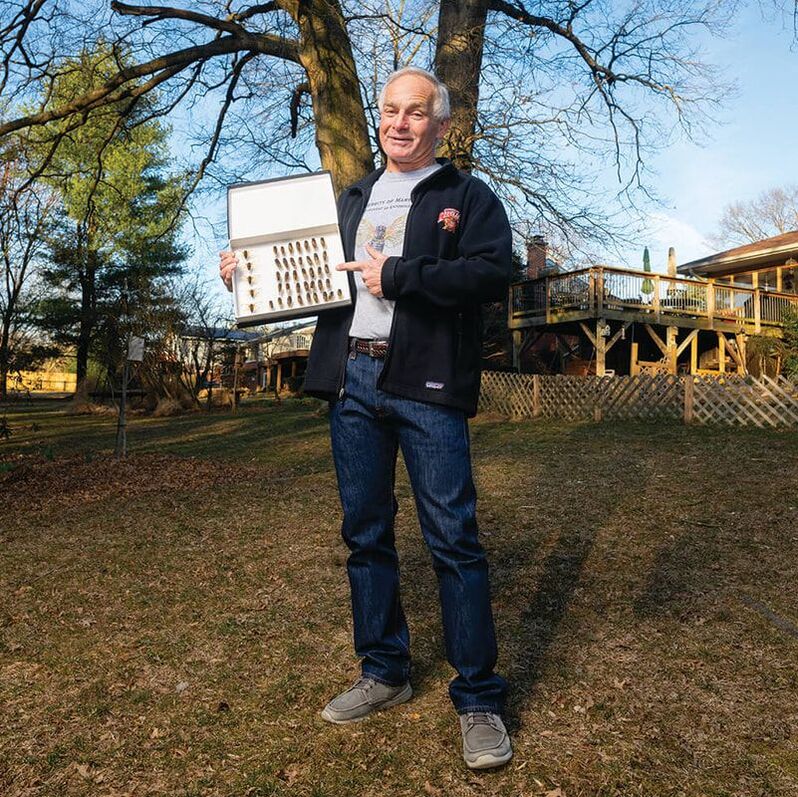
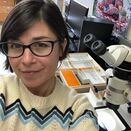
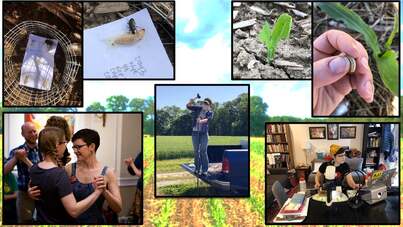
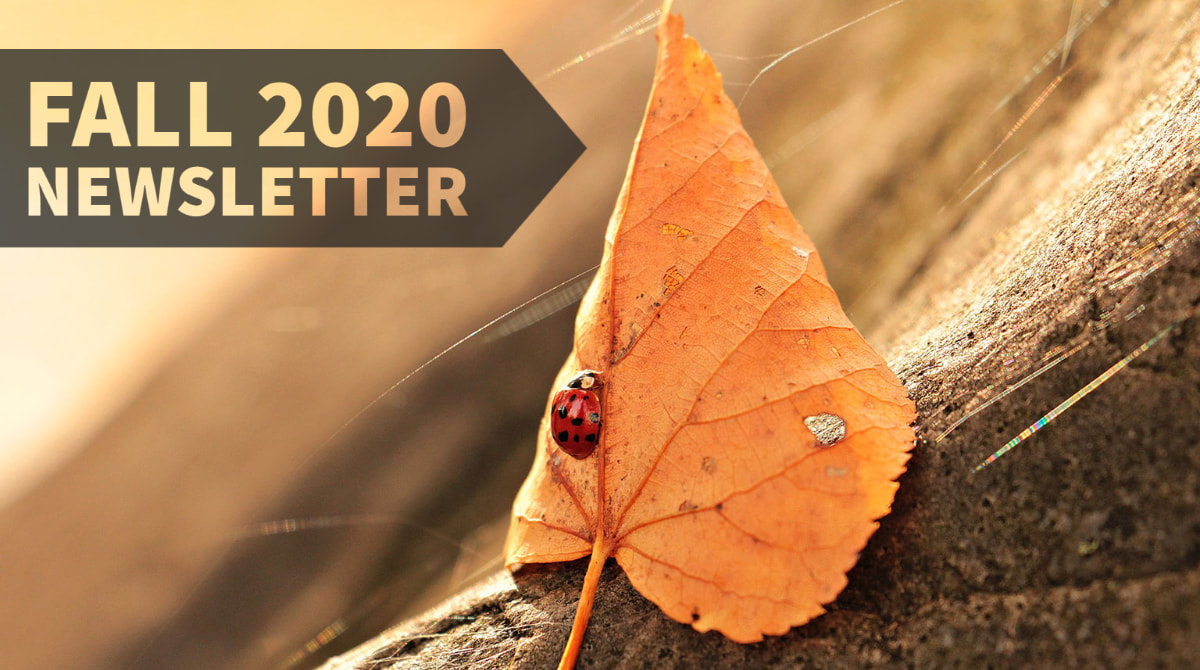

 RSS Feed
RSS Feed




